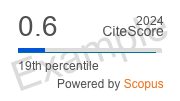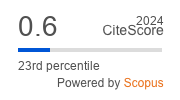The role of therapeutic hypothermia in reducing of the reperfusion injury in patients with STEMI: narrative review
https://doi.org/10.29001/2073-8552-2023-581
Abstract
Despite timely coronary reperfusion, about 7% of patients with acute myocardial infarction die during hospitalization and around 23% survivors develop heart failure within one year. Reperfusion injury is largely responsible for the final infarct size. Although, there is some progress in myocardial revascularization, prevention and treatment of the reperfusion injury in myocardial infarction patients is not successful enough in clinical practice. Hypothermia can reduce reperfusion injury and improve survival and reduce the number of complications in patients with myocardial infarction.
About the Authors
Yu. I. BogdanovRussian Federation
Yury I. Bogdanov, Cand. Sci. (Med.), Research Scientist, Laboratory of Endovascular Surgery
111a, Kievskaya str., Tomsk, 634012
A. E. Baev
Russian Federation
Andrey E. Baev, Cand. Sci. (Med.), Head of the Laboratory of Endovascular Surgery
111a, Kievskaya str., Tomsk, 634012
V. V. Ryabov
Russian Federation
Vyacheslav V. Ryabov, Dr. Sci. (Med.), Associate Professor, Deputy Director for Scientific and Medical Work
111a, Kievskaya str., Tomsk, 634012
S. E. Pekarsky
Russian Federation
Stanislav E. Pekarsky, Dr. Sci. (Med.), Senior Research Scientist, Laboratory of Endovascular Surgery
111a, Kievskaya str., Tomsk, 634012
E. S. Gergert
Russian Federation
Egor S. Gergert, Junior Research Scientist, Laboratory of Endovascular Surgery
111a, Kievskaya str., Tomsk, 634012
R. M. Gromovoy
Russian Federation
Roman M. Gromovoy, Junior Research Scientist, Laboratory of Endovascular Surgery
111a, Kievskaya str., Tomsk, 634012
M. G. Tarasov
Russian Federation
Mikhail G. Tarasov, Cand. Sci. (Med.), Junior Research Scientist, Laboratory of Endovascular Surgery
111a, Kievskaya str., Tomsk, 634012
S. M. Sultanov
Russian Federation
Syrgak M Sultanov, Junior Research Scientist, Laboratory of Endovascular Surgery
111a, Kievskaya str., Tomsk, 634012
I. V. Suslov
Russian Federation
Ivan V. Suslov, Junior Research Scientist, Laboratory of Endovascular Surgery
111a, Kievskaya str., Tomsk, 634012
References
1. Delbridge M.S., Shrestha B.M., Raftery A.T., El Nahas A.M., Haylor J.L. The effect of body temperature in a rat model of renal ischemia-reperfusion injury. Transplant. Proc. 2007;39(10):2983–2985. DOI: 10.1016/j.transproceed.2007.04.028.
2. Zager R.A., Gmur D.J., Bredl C.R., Eng M.J. Degree and time sequence of hypothermic protection against experimental ischemic acute renal failure. Circ. Res. 1989;65(5):1263–1269. DOI: 10.1161/01.res.65.5.1263.
3. Kuboyama K., Safar P., Radovsky A., Tisherman S.A., Stezoski S.W., Alexander H. Delay in cooling negates the beneficial effect of mild resuscitative cerebral hypothermia after cardiac arrest in dogs: a prospective, randomized study. Crit. Care Med. 1993;21(9):1348–1358. DOI: 10.1097/00003246-199309000-00019.
4. Tissier R., Chenoune M., Ghaleh B., Cohen M.V., Downey J.M., Berdeaux A. The small chill: mild hypothermia for cardioprotection? Cardiovasc. Res. 2010;88(3):406–414. DOI: 10.1093/cvr/cvq227.
5. Engelman R., Baker R.A., Likosky D.S., Grigore A., Dickinson T.A., Shore-Lesserson L. et al. The Society of Thoracic Surgeons, The Society of Cardiovascular Anesthesiologists, and The American Society of ExtraCorporeal Technology: clinical practice guidelines for cardiopulmonary bypass –temperature management during cardiopulmonary bypass. J. Cardiothorac. Vasc. Anesth. 2015;29(4):1104–1113. DOI: 10.1053/j.jvca.2015.07.011.
6. Hypothermia after Cardiac Arrest Study Group. Mild therapeutic hypothermia to improve the neurologic outcome after cardiac arrest. N. Engl. J. Med. 2002;346(8):549–556. DOI: 10.1056/NEJMoa012689.
7. Post H., Schmitto J.D., Steendijk P., Christoph J., Holland R., Wachter R. et al. Cardiac function during mild hypothermia in pigs: increased inotropy at the expense of diastolic dysfunction. Acta Physiol. (Oxf.). 2010;199(1):43–52. DOI: 10.1111/j.1748-1716.2010.02083.x.
8. Ujhelyi M.R., Sims J.J., Dubin S.A., Vender J., Miller A.W. Defibrillation energy requirements and electrical heterogeneity during total body hypothermia. Crit. Care Med. 2001;29(5):1006–1011. DOI: 10.1097/00003246-200105000-00025.
9. Rolfast C.L., Lust E.J., de Cock C.C. Electrocardiographic changes in therapeutic hypothermia. Crit. Care. 2012;16:R100. DOI: 10.1186/cc11369.
10. Rankin A.C., Rae A.P. Cardiac arrhythmias during rewarming of patients with accidental hypothermia. Br. Med. J. (Clin. Res. Ed.). 1984;289(6449):874–877. DOI: 10.1136/bmj.289.6449.874.
11. Noc M., Erlinge D., Neskovic A.N., Kafedzic S., Merkely B., Zima E. et al. COOL AMI EU pilot trial: a multicentre, prospective, randomised controlled trial to assess cooling as an adjunctive therapy to percutaneous intervention in patients with acute myocardial infarction. EuroIntervention. 2017;13(5):e531–e539. DOI: 10.4244/EIJ-D-17-00279.
12. Manninger M., Alogna A., Zweiker D., Zirngast B., Reiter S., Herbst V. et al. Mild hypothermia (33°C) increases the inducibility of atrial fibrillation: An in vivo large animal model study. Pacing Clin. Electrophysiol. 2018;41(7):720–726. DOI: 10.1111/pace.13351.
13. Thomsen J.H., Hassager C., Erlinge D., Nielsen N., Horn J., Hovdenes J. et al. Atrial fibrillation following out-of-hospital cardiac arrest and targeted temperature management – Are we giving it the attention it deserves? Crit. Care Med. 2016;44(12):2215–2222. DOI: 10.1097/CCM.0000000000001958.
14. Kudlicka J., Mlcek M., Belohlavek J., Hala P., Lacko S., Janak D. et al. Inducibility of ventricular fibrillation during mild therapeutic hypothermia: electrophysiological study in a swine model. J. Transl. Med. 2015;13:72. DOI: 10.1186/s12967-015-0429-9.
15. Polderman K.H. Mechanisms of action, physiological effects, and complications of hypothermia. Crit. Care Med. 2009;37(7 Suppl.):S186– S202. DOI: 10.1097/CCM.0b013e3181aa5241.
16. Suga H., Goto Y., Igarashi Y., Yasumura Y., Nozawa T., Futaki S. et al. Cardiac cooling increases Emax without affecting relation between O2 consumption and systolic pressure-volume area in dog left ventricle. Circ. Res. 1988;63:61–71. DOI: 10.1161/01.res.63.1.61.
17. Bergmann S.R., Angelakos E.T., Torres J.C. Salutary effects of moderate hypothermia on the circulatory and myocardial consequences of acute coronary occlusion in dogs. Cryobiology. 1985;22(6):555–568. DOI: 10.1016/0011-2240(85)90032-x.
18. Hodges G.J., Ferguson S.A.H., Cheung S.S. Cardiac autonomic function during hypothermia and its measurement repeatability. Appl. Physiol. Nutr. Metab. 2019;44(1):31–36. DOI: 10.1139/apnm-2018-0248.
19. Rose J.C., McDermott T.F., Lilienfield L.S., Porfido F.A., Kelley R.T. Cardiovascular function in hypothermic anesthetized man. Circulation. 1957;15(4):512–517. DOI: 10.1161/01.CIR.15.4.512.
20. Schwarzl M., Huber S., Maechler H., Steendijk P., Seiler S., Truschnig-Wilders M. et al. Left ventricular diastolic dysfunction during acute myocardial infarction: effect of mild hypothermia. Resuscitation. 2012;83(12):1503–1510. DOI: 10.1016/j.resuscitation.2012.05.011.
21. Simkhovich B.Z., Hale S.L., Kloner R.A. Metabolic mechanism by which mild regional hypothermia preserves ischemic tissue. J. Cardiovasc. Pharmacol. Ther. 2004;9(2):83–90. DOI: 10.1177/107424840400900203.
22. Fairley H.B. Metabolism in hypothermia. Br. Med. Bull. 1961;17:52–55. DOI: 10.1093/oxfordjournals.bmb.a069865.
23. Ziganshin B.A., Elefteriades J.A. Deep hypothermic circulatory arrest. Ann. Cardiothorac. Surg. 2013;2(3):303–315. DOI: 10.3978/j.issn.2225-319X.2013.01.05.
24. Jones R.N., Reimer K.A., Hill M.L., Jennings R.B. Effect of hypothermia on changes in high-energy phosphate production and utilization in total ischemia. J. Mol. Cell. Cardiol. 1982;14(3):123–130. DOI: 10.1016/0022-2828(82)90140-7.
25. Hausenloy D.J., Yellon D.M. Myocardial ischemia-reperfusion injury: a neglected therapeutic target. J. Clin. Invest. 2013;123(1):92–100. DOI: 10.1172/JCI62874.
26. Inoue K., Ando S., Gyuan F., Takaba T. A study of the myocardial protective effect of rapid cooling based on intracellular Ca, intracellular pH, and HSP70. Ann. Thorac. Cardiovasc. Surg. 2003;9(5):301–306. URL: https://pubmed.ncbi.nlm.nih.gov/14672526/ (28.06.2023).
27. Xu L., Yenari M.A., Steinberg G.K., Giffard R.G. Mild hypothermia reduces apoptosis of mouse neurons in vitro early in the cascade. J. Cereb. Blood Flow Metab. 2002;22(1):21–28. DOI: 10.1097/00004647-200201000-00003.
28. Krech J., Tong G., Wowro S., Walker C., Rosenthal L.M., Berger F. et al. Moderate therapeutic hypothermia induces multimodal protective effects in oxygen-glucose deprivation/reperfusion injured cardiomyocytes. Mitochondrion. 2017;35:1–10. DOI: 10.1016/j.mito.2017.04.001.
29. Ning X.H., Chen S.H., Xu C.S., Li L., Yao L.Y., Qian K. et al. Hypothermic protection of the ischemic heart via alterations in apoptotic pathways as assessed by gene array analysis. J. Appl. Physiol. 1985. 2002;92:2200– 2207. DOI: 10.1152/japplphysiol.01035.2001.
30. Dash R., Mitsutake Y., Pyun W.B., Dawoud F., Lyons J., Tachibana A. et al. Dose-dependent cardioprotection of moderate (32 °C) versus mild (35 °C) therapeutic hypothermia in porcine acute myocardial infarction. JACC Cardiovasc. Interv. 2018;11(2):195–205. DOI: 10.1016/j.jcin.2017.08.056.
31. Hale S.L., Dave R.H., Kloner R.A. Regional hypothermia reduces myocardial necrosis even when instituted after the onset of ischemia. Basic. Res. Cardiol. 1997;92(5):351–357. DOI: 10.1007/BF00788947.
32. Baraka A. Influence of surface cooling and rewarming on whole-body oxygen supply-demand balance. Br. J. Anaesth. 1994;73(3):418–420. DOI: 10.1093/bja/73.3.418.
33. Bro-Jeppesen J., Annborn M., Hassager C., Wise M.P., Pelosi P., Nielsen N. et al. Hemodynamics and vasopressor support during targeted temperature management at 33 degrees C Versus 36 degrees C after out-of-hospital cardiac arrest: a post hoc study of the target temperature management trial. Crit. Care Med. 2015;43(2):318–327. DOI: 10.1097/CCM.0000000000000691.
34. Furnau G., Beck J., Desch S., Eitel I., Jung C., Erbs S. et al. Mild hypothermia in cardiogenic shock complicating myocardial infarction – the randomized SHOCK-COOL pilot trial. Wien. Klin. Wochenschr. 2017;129:S94. DOI: 10.1016/S0735-1097(17)34572-2.
35. Ly H.Q., Denault A., Dupuis J., Vadeboncoeur A., Harel F., Arsenault A. et al. A pilot study: the noninvasive surface cooling thermoregulatory system for mild hypothermia induction in acute myocardial infarction (The NICAMI study). Am. Heart J. 2005;150:933. DOI: 10.1016/j.ahj.2005.02.049.
36. Otterspoor L.C., Van’t Veer M., van Nunen L.X., Brueren G.R.G., Tonino P.A.L., Wijnbergen I.F. et al. Safety and feasibility of selective intracoronary hypothermia in acute myocardial infarction. Eurointervention. 2017;13(12):E1475–E1482. DOI: 10.4244/EIJ-D-17-00240.
37. Gotberg M., Olivecrona G.K., Koul S., Carlsson M., Engblom H., Ugander M., et al. A pilot study of rapid cooling by cold saline and endovascular cooling before reperfusion in patients with ST-elevation myocardial infarction. Circ. Cardiovasc. Inte. 2010;3(5):400–407. DOI: 10.1161/CIRCINTERVENTIONS.110.957902.
38. Dae M., O’Neill W., Grines C., Dixon S., Erlinge D., Noc M. et al. Effects of endovascular cooling on infarct size in ST-segment elevation myocardial infarction: A patient-level pooled analysis from randomized trials. J. Interv. Cardiol. 2018;31(3):269–276. DOI: 10.1111/joic.12485.
39. Kapur N.K., Alkhouli M.A., DeMartini T.J., Faraz H., George Z.H., Goodwin M.J. et al. Unloading the left ventricle before reperfusion in patients with anterior ST-segment-elevation myocardial infarction. Circulation. 2019;139(3):337–346. DOI: 10.1161/CIRCULATIONAHA.118.038269.
40. Noc M., Erlinge D., Neskovic A.N., Kafedzic S., Merkely B., Zima E. et al. COOL AMI EU pilot trial: a multicentre, prospective, randomised controlled trial to assess cooling as an adjunctive therapy to percutaneous intervention in patients with acute myocardial infarction. EuroIntervention. 2017;13(5):e531–e539. DOI: 10.4244/EIJ-D-17-00279.
Review
For citations:
Bogdanov Yu.I., Baev A.E., Ryabov V.V., Pekarsky S.E., Gergert E.S., Gromovoy R.M., Tarasov M.G., Sultanov S.M., Suslov I.V. The role of therapeutic hypothermia in reducing of the reperfusion injury in patients with STEMI: narrative review. Siberian Journal of Clinical and Experimental Medicine. 2024;39(3):19-25. (In Russ.) https://doi.org/10.29001/2073-8552-2023-581
JATS XML





.png)





























